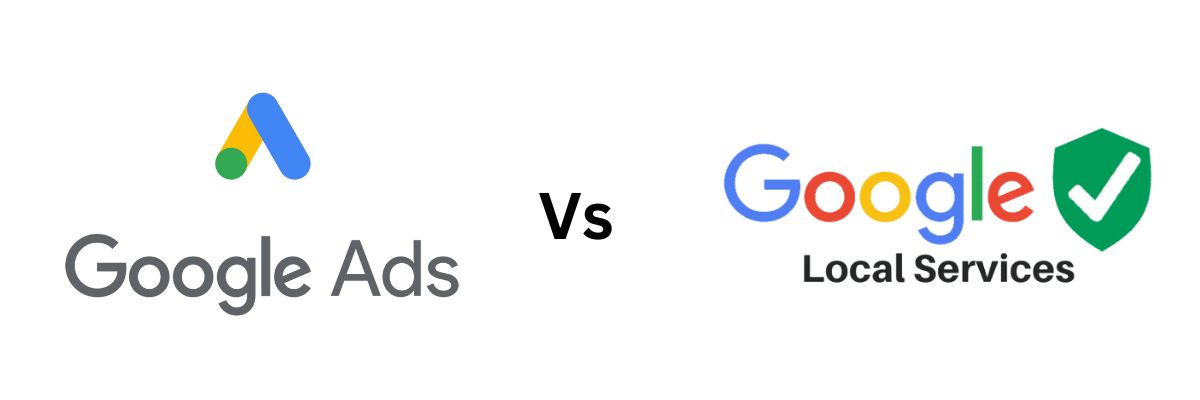If you’re looking to drive new leads for your kitchen remodeling business, Google Ads is one of the most powerful tools at your disposal. With over 85% of homeowners searching for local contractors online, your target audience is already actively looking for your services—it’s just a matter of making sure they find you.
Google Ads allows your kitchen remodeling firm to appear at the top of search results for targeted keywords in specific areas, ensuring your services are seen by the right people at the right time. In this guide, you’ll learn how to run an effective Google Ads campaign for kitchen remodeling, helping you generate consistent, high-quality leads.

Step One: Choose What Kitchen Remodeling Services to Advertise
When creating a Google Ads campaign, it’s crucial to narrow your focus and choose specific kitchen remodeling services to advertise. Avoid trying to promote everything at once, as this can dilute your ad spend and reduce effectiveness. Instead, focus on high-value or in-demand services that offer the best return on investment (ROI).
Examples of Services to Highlight:
- Full kitchen remodels.
- Custom cabinetry and countertop installations.
- Luxury kitchen renovations.
- Affordable kitchen makeovers for budget-conscious homeowners.
Prioritize services that bring in higher profit margins or align with seasonal trends. For instance, promoting complete remodels during the fall and winter months could attract homeowners preparing for the holidays. By targeting specific offerings, you ensure your ads are laser-focused on the customers most likely to convert.
Step Two: Conduct Keyword Research
Keyword research is the backbone of any successful Google Ads campaign. For a kitchen remodeling business, it’s important to identify the exact search terms your potential customers are using to find services in your area.
Types of Keywords to Target:
- General Remodeling Terms:
- “Kitchen remodel near me”
- “Best kitchen remodeling contractors”
- Location-Specific Keywords:
- “Kitchen renovations in [City Name]”
- “Top kitchen remodeling companies in [City]”
- Service-Specific Keywords:
- “Custom kitchen cabinet installation”
- “Quartz countertop installation”
Pro Tip: Include Local Modifiers
Adding geographic terms to your keywords ensures your ads are seen by homeowners in your service area. For example, “modern kitchen renovations in Denver” or “luxury kitchen remodel in Miami” targets a local audience and reduces wasted ad spend on irrelevant traffic.
Keyword Volume and Competition
Strike a balance between broad and long-tail keywords. While general terms like “kitchen remodel” attract a larger audience, they are also more competitive and expensive. Long-tail keywords such as “affordable kitchen remodeling services in [City]” or “eco-friendly kitchen designs in [City]” are often more cost-effective and attract users with a specific intent.
PRO TIP: You Don’t Need That Many Keywords
Aim for 5–15 highly targeted keywords per ad group. This ensures your ads are hyper-relevant to the search queries you’re targeting and helps you allocate your budget to terms that are more likely to drive conversions. By focusing on a smaller, carefully curated set of keywords, you can achieve better performance, higher click-through rates, and a stronger return on investment. Quality beats quantity every time in keyword strategy.
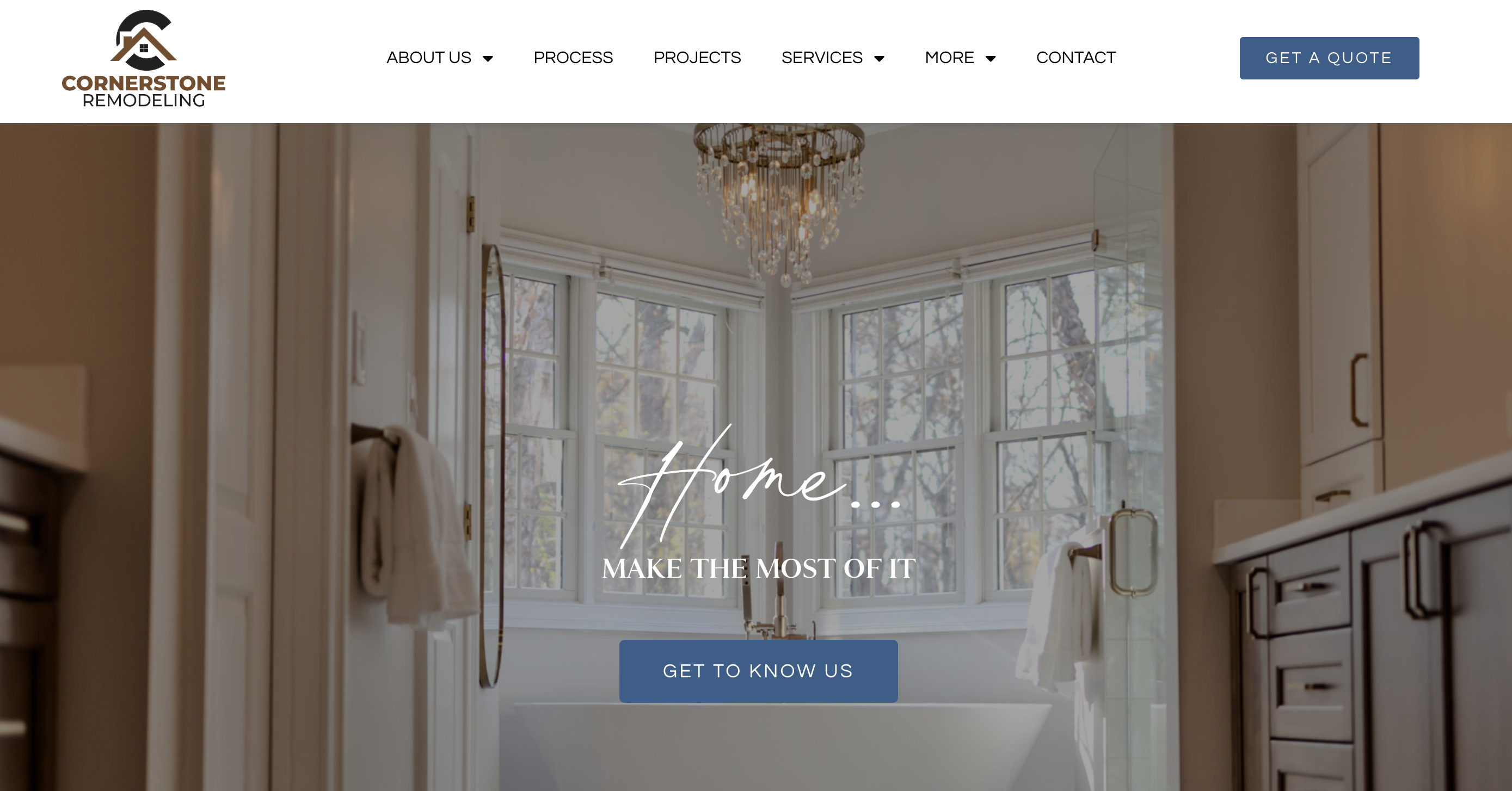
Step Three: Optimize Your Landing Page
The most important part of a Google Ads campaign isn’t just the ad itself—it’s the quality of the landing page. When someone clicks on your ad, they expect the landing page to deliver exactly what they were looking for. If the page is irrelevant, confusing, or poorly designed, even the best ad won’t convert visitors into leads or customers. A high-quality landing page is essential to turning clicks into conversions and ensuring a positive return on your advertising investment.
A well-optimized landing page must be highly relevant to the ad and aligned with the user’s intent. For example, if your ad promotes “Luxury Kitchen Remodeling,” the landing page should prominently showcase high-end kitchen projects, testimonials, and a clear call-to-action (CTA), like “Schedule Your Free Consultation.” Consistency between the ad and the landing page builds trust and keeps users engaged, reducing bounce rates and increasing the likelihood of a conversion.
Google Ads also takes your landing page quality into account through its Quality Score, a metric that impacts your ad placement and cost-per-click (CPC). A high-quality landing page can lead to a better Quality Score, which means your ads perform better and cost less. Key elements that contribute to a strong landing page include fast loading times, mobile responsiveness, user-friendly navigation, and content that directly addresses the user’s needs.
Ultimately, the landing page is where the action happens—it’s where users decide to take the next step. Investing time and effort into optimizing your landing page can dramatically boost the effectiveness of your Google Ads campaign and ensure that you’re maximizing every click.
Key Elements of a High-Converting Landing Page:
- Service-Specific Content: Highlight the exact service advertised in the ad. If you’re promoting “luxury kitchen remodels,” ensure your landing page focuses on high-end designs, materials, and previous projects.
- Professional Images: Showcase your work with high-quality before-and-after photos. Visuals are critical for kitchen remodeling businesses.
- Social Proof: Include testimonials, customer reviews, and awards to establish credibility.
- Call-to-Action (CTA): Make it easy for users to contact you. Examples:
- “Schedule a Free Consultation”
- “Call Now for Your Quote”
- Mobile Optimization: Ensure your landing page is fast and responsive on all devices, as many users will visit from their smartphones.
What If You Don’t Have a Website?
If you lack a dedicated website, you can direct traffic to your Google Business Profile (GBP). A well-maintained GBP allows potential customers to view your services, read reviews, and contact you directly. While having a website offers greater flexibility, using GBP is a great alternative for businesses starting out.
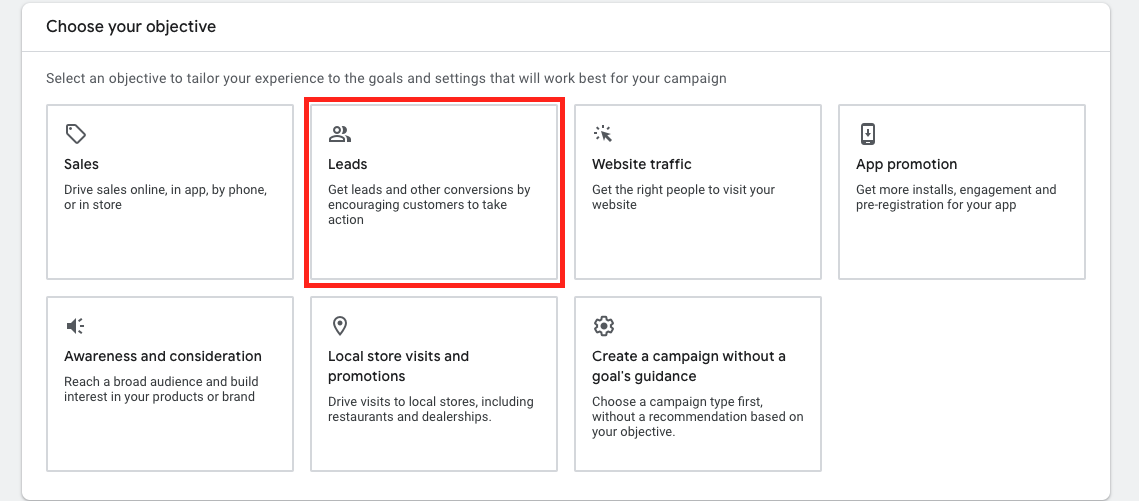
Step Four: Setting Up Your Google Ads Campaign
Choosing a Campaign Objective
For kitchen remodeling businesses, the best objective is “Leads.” This ensures your ads are optimized to drive valuable actions, such as phone calls, form submissions, or consultation bookings.
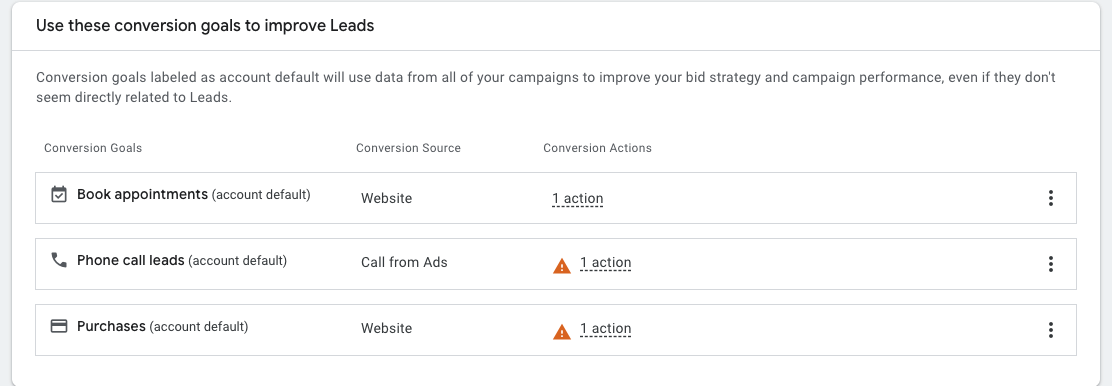
Conversion Goals to Focus On:
- Phone calls from potential clients.
- Online form submissions requesting quotes.
- Appointment bookings for design consultations.
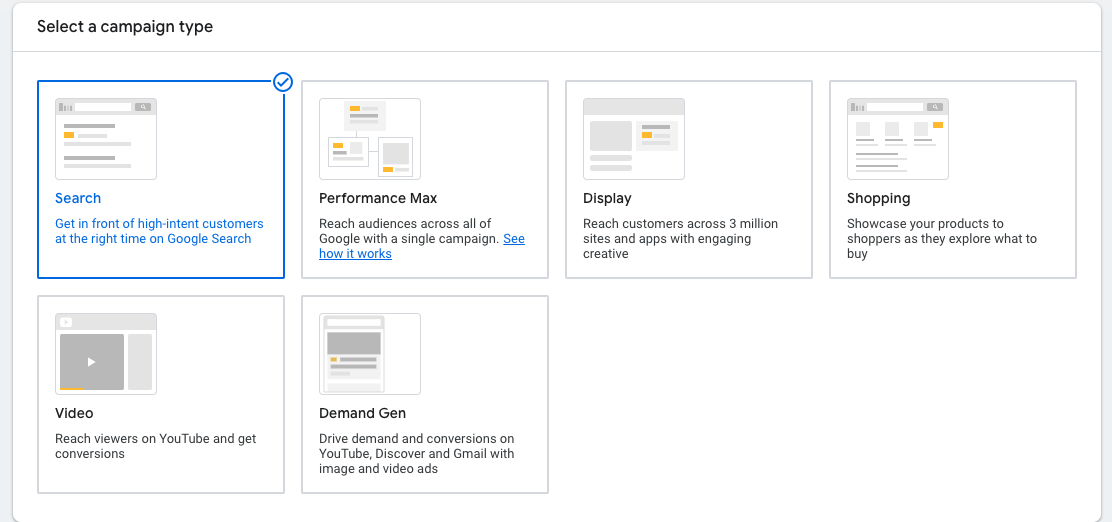
Selecting a Campaign Type
Search Ads are the best option for kitchen remodelers. These ads appear directly in search results, targeting homeowners actively looking for kitchen renovation services.
Campaign Settings:
- Turn Off Google Search Partners: Prevents ads from appearing on less relevant third-party sites.
- Turn Off Display Network: Focus your budget on high-intent users in search results.

Step Five: Writing Effective Ad Copy
Key Elements of a Winning Ad Copy:
- Compelling Headlines:
- “Transform Your Kitchen Today – Call for a Free Consultation”
- “Top Kitchen Remodeling Experts in [City Name]”
- Include Keywords: Reinforce your relevance by using the keywords from your research.
- Value Propositions: Highlight benefits like:
- “Custom Designs & Expert Craftsmanship”
- “Licensed, Insured, and Trusted for Over 10 Years”
- Clear CTA:
- “Get Your Free Quote Now!”
- “Call for a Free Kitchen Design Consultation!”
Example Ad:
Headline 1: “Luxury Kitchen Remodeling in [City]”
Headline 2: “Affordable & Custom Designs”
Description: “Upgrade your kitchen with expert remodeling services. Call today for a free quote!”
Use Ad Extensions:
- Call Extensions: Include your phone number.
- Location Extensions: Highlight your service area.
- Promotion Extensions: Offer seasonal discounts to boost engagement.
PRO TIP: Dynamic Headline Insertion
Dynamic headlines in Google Ads use specific syntax to make your ads more personalized and relevant:
Dynamic Keyword Insertion (DKI): {KeyWord:Default Text} – Inserts the user’s search query into the headline. If the query is too long, default text is displayed.
Example: Search query “Custom Kitchen Cabinets in Boston” becomes the headline, or defaults to “Kitchen Remodeling Experts.”
Location Insertion: {Location(City)} – Dynamically adds the user’s location to the headline.
Example: A user in Los Angeles searching for “kitchen renovations near me” sees “Top Kitchen Remodelers in Los Angeles.”
Countdown: {COUNTDOWN(“yyyy/MM/dd HH:mm:ss”)} – Adds a real-time countdown to a specific date or time in the headline.
Example: “20% Off – Sale Ends in {COUNTDOWN(“2024/11/30″)}” dynamically updates to “6 Days Left” as the date approaches.
IF Function: {=IF(audience IN [list],headline text):default text} – Customizes headlines based on audience or device type.
Example: Mobile users see “Call Now for a Free Quote!” while others see “Get Your Kitchen Remodel Estimate Today!”
Step Six: Set Up Conversion Tracking
Conversion tracking is a critical component of running a successful Google Ads campaign, allowing you to measure the effectiveness of your ads and understand how users interact with them after clicking. By monitoring key actions such as phone calls, form submissions, or appointment bookings, you gain valuable insights into which aspects of your campaign are driving results and where improvements can be made. This data doesn’t just show what’s working—it helps optimize your ads to generate even more conversions over time.
For tracking phone calls, Google provides features like call extensions and dynamic phone numbers. Call extensions allow users to click and call directly from your ad, and these interactions can be tracked as conversions. Dynamic phone numbers, on the other hand, are used on your website and replace your standard number when visitors come from your ad. These numbers allow you to track calls originating from your Google Ads campaign and identify which ads or keywords are driving inquiries.
For form submissions, a simple but effective method is redirecting users to a dedicated “thank you” page after they complete a form, such as a request for a consultation or quote. By setting up conversion tracking to monitor visits to this page, you can accurately measure the number of completed forms attributed to your ads.
The true power of conversion tracking lies in how the data feeds back into Google Ads’ optimization algorithms. By enabling tracking, you allow Google’s machine learning tools to analyze conversion behavior, identify patterns, and optimize your campaigns to focus on users most likely to convert. Over time, this data-driven approach ensures your budget is spent more efficiently, driving higher-quality leads and better results for your business.
Step Seven: Budgeting for Your Ads
A recommended starting budget for kitchen remodelers is $1,500 per month. This allows you to gather sufficient data, drive traffic, and generate leads.
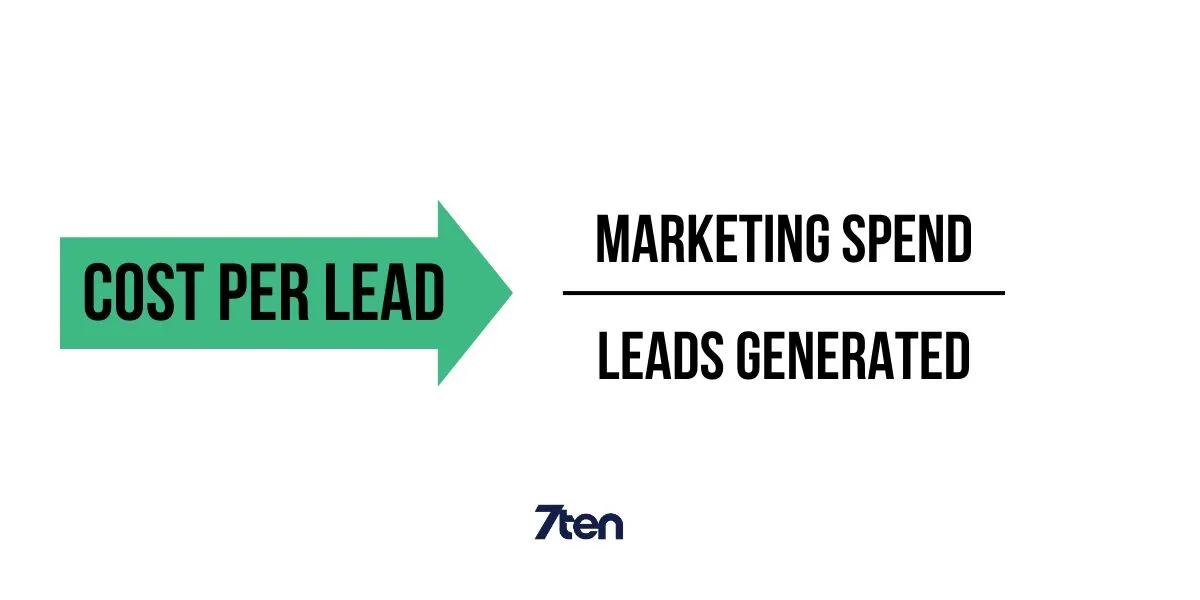
Calculating Your Cost Per Lead (CPL):
If your average CPL is $200, a $1,500 budget would generate approximately 7–8 leads per month. Regularly analyze and adjust your budget based on campaign performance to optimize ROI.
Step Eight: Monitor and Optimize Your Campaign
Metrics to Track:
- Impressions: How often your ad is shown.
- Click-Through Rate (CTR): Indicates ad relevance.
- Cost Per Click (CPC): Determines the efficiency of your budget.
- Conversions: The number of leads generated.
- Cost Per Lead (CPL): Shows the overall efficiency of your campaign.
Optimization Tips:
- Adjust bids for high-performing ad groups
- Pause underperforming ad groups.
- Test new ad copy and CTAs to improve engagement.
- Continuously monitor conversion tracking to ensure accuracy.
Conclusion
Running Google Ads for your kitchen remodeling business can drive high-quality leads and help grow your clientele. By following these steps—selecting the right services, conducting thorough keyword research, optimizing your landing pages, and monitoring performance—you can create an effective ad campaign tailored to your business goals.
Need help setting up your Google Ads? Contact us at 7ten Marketing for expert guidance and support to maximize your campaign’s success!
Related Posts
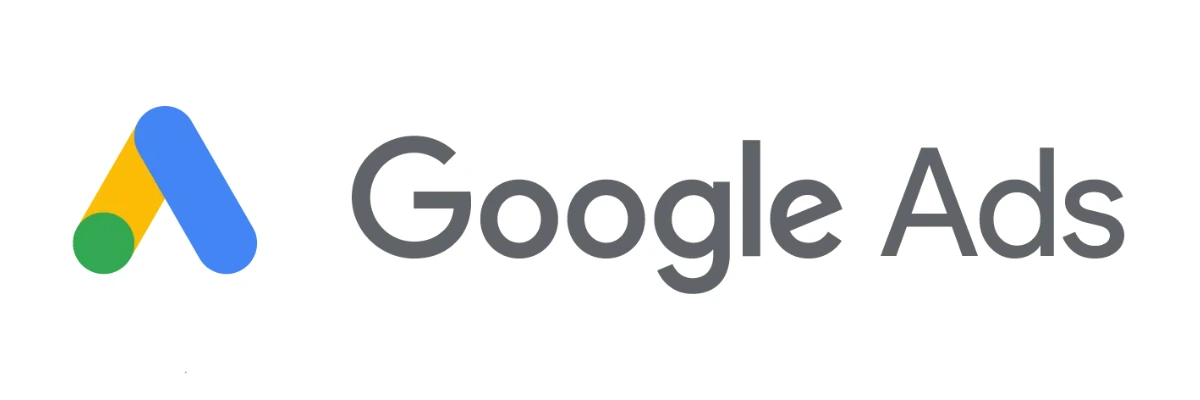
How to Run Google Ads for Electricians
Learn More